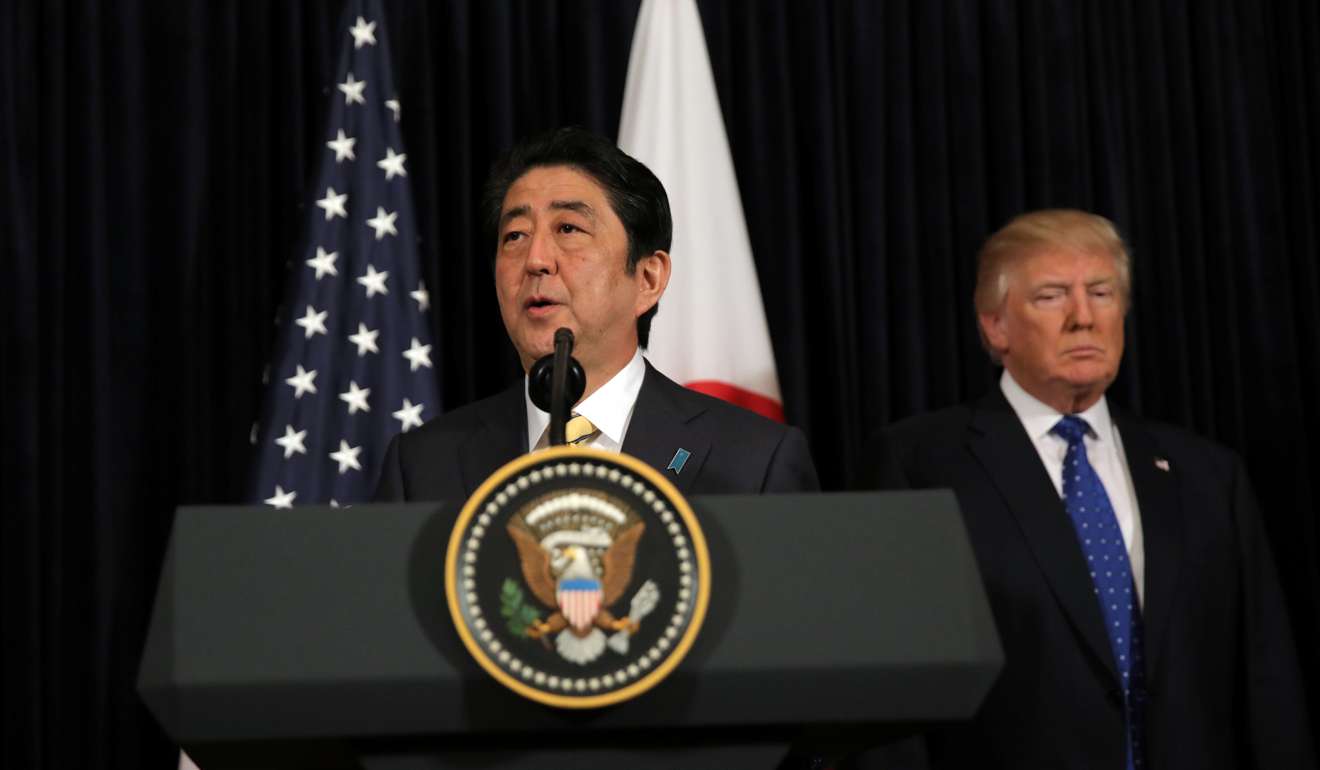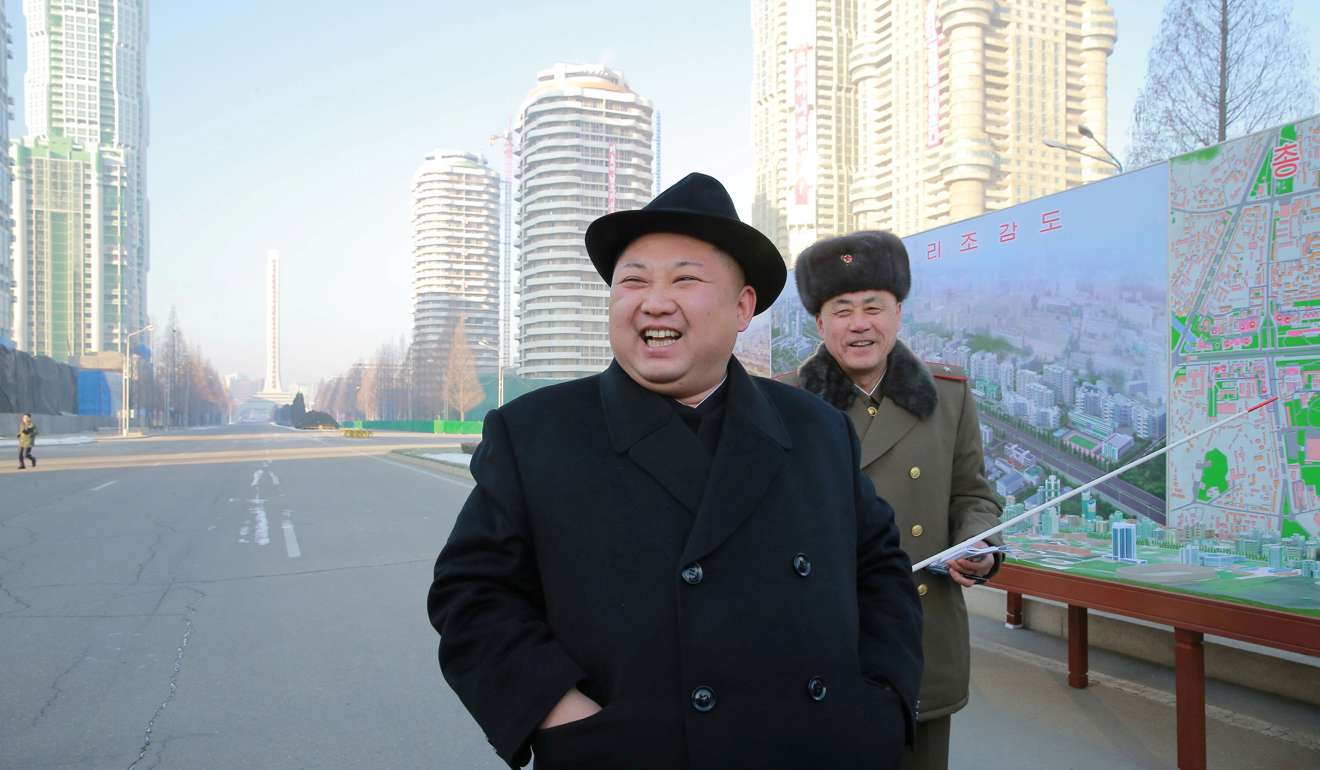
North Korea fires ballistic missile to ‘test response from President Trump’
Trump says US stands behind Japan ‘100 per cent’ after Abe condemns North Korea missile launch as ‘absolutely intolerable’
North Korea test-fired a ballistic missile into the Sea of Japan on Sunday in what appeared to be a move timed to follow the first summit between Japanese Prime Minister Shinzo Abe and US President Donald Trump in Washington.
Trump and Abe held an impromptu press conference in Palm Beach, Florida, in response to the launch, which Abe described as “absolutely intolerable”. Trump, in turn, vowed full support for Japan.
“I just want everybody to understand and fully know that the United States of America stands behind Japan, its great ally, 100 per cent,” Trump said.
The missile, launched around 7.55am from Banghyon air base in the western province of North Pyongan Province, flew east towards the Sea of Japan, the South Korean defence ministry said. The missile flew about 500km before falling into the sea, a defence ministry spokesman said.

“It is believed that today’s missile launch ... is aimed at drawing global attention to the North by boasting its nuclear and missile capabilities,” the ministry said in a statement.
“It is also believed that it was an armed provocation to test the response from the new US administration under President Trump.”
Yonhap news agency said the South Korean military suspected the North might have been testing an intermediate-range Musudan missile. US Strategic Command later confirmed this.
Last October, North Korea test-fired Musudan missiles twice from the same airbase.
On a visit to Seoul earlier this month, new US defence secretary James Mattis warned Pyongyang that any nuclear attack would be met with an “effective and overwhelming” response.
“Any attack on the United States or our allies will be defeated and any use of nuclear weapons would be met with a response that would be effective and overwhelming,” Mattis said.

Pyongyang in 2016 conducted two nuclear tests and numerous missile launches in its quest to develop a nuclear weapons system capable of hitting the US mainland.
In January leader Kim Jong-un boasted that Pyongyang was in the “final stages” of developing an intercontinental ballistic missile (ICBM) in an apparent attempt to pressure the incoming US president. Trump shot back on Twitter, saying: “It won’t happen.”
The latest North Korean launch also comes after Trump assured Abe that Washington was committed to the security of its key Asian ally.
Any use of nuclear weapons would be met with a response that would be effective and overwhelming
“We will work together to promote our shared interests, of which we have many, in the region, including freedom from navigation and defending against the North Korean missile and nuclear threat, both of which I consider a very, very high priority,” Trump said on Friday.
Washington has repeatedly vowed that it would never accept North Korea as a nuclear-armed nation.
Analysts are divided over how close Pyongyang is to realising its full nuclear ambitions, especially as it has never successfully test-fired an ICBM.
But all agree it has made enormous strides in that direction since Kim took over after the death of his father and long-time ruler, Kim Jong-il, in December 2011.
The young leader is planning a “prime time” nuclear weapons push this year to take advantage of a leadership transition in South Korea – where the president has been impeached – and the US, a high-ranking North Korean defector said recently.
Thae Yong-Ho, a former deputy ambassador to Britain who recently defected to Seoul, said Kim would never trade away the North’s nuclear arsenal no matter how large a financial incentive might be offered.

.png?itok=arIb17P0)